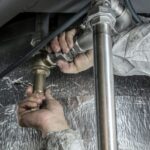Canada announced on Monday (26) that it will impose a 100 percent tariff on electric cars imported from China and announced a 25 percent tariff on steel and aluminum imports from China.
A Canadian government official said the tariff applies to all electric vehicles imported from China, which includes electric and partially hybrid passenger cars, trucks, transit buses and passenger and cargo vehicles. The 100 percent surtax will be imposed on top of the current 6.1 percent tariff that Canada imposes on electric vehicles originating from China. The said tariffs will begin to be levied on October 1st.
For China, the tariff increase will have a direct impact on its exports of electric vehicles and other related products. Last year, Canada’s imports of Chinese electric vehicles totaled C$2.2 billion (about RMB 11.6 billion), according to Statistics Canada.
Prime Minister Justin Trudeau says Canada is taking action to counter China’s “subsidized” policy on electric vehicles. A few months ago, Deputy Prime Minister and Minister of Finance Chrystia Freelandc was concerned that the growth of China’s auto industry was undermining Canada’s competitiveness in the electric vehicle market, both locally and globally.
Justin Trudeau said Canada will continue to work with the U.S. and other allies and is considering further steps to impose tariffs on Chinese chips and solar cells. But he did not give specific details.
In May of this year, the U.S. government announced an increase in tariffs on Chinese electric vehicles to 100 percent and on semiconductors and solar cells to 50 percent. Increased 301 tariffs on 14 categories of Chinese products, electric cars raised to 100%.
The European Union imposed tariffs of up to 36.3 percent on imported electric cars, with a rate of just 9 percent on Tesla. BYD will be subject to a 17% countervailing duty, Geely will be subject to a 19.3% countervailing duty, and SAIC will be subject to a 36.3% countervailing duty. Other Chinese car companies not sampled but cooperating with the EU investigation will be subject to a 21.3% countervailing duty.
Tesla bears the brunt
China is Canada’s second largest trading partner. In the Chinese electric car market, except for Tesla, which occupies a high percentage of about 40%, Chinese cars mainly enter the Canadian market through parallel imports, and sales are not high.
Canada is trying to position itself as a key link in the global EV supply chain, and in an effort to solidify its domestic manufacturing core, the country has signed multi-billion dollar agreements with European automakers across the entire automotive industry chain to attract top European automakers to participate in all aspects of the EV supply chain.
It should be noted that Canada’s domestic electric vehicle market itself is not well developed due to geographic location and other reasons. According to the Financial Times, automotive manufacturing is one of Canada’s most important manufacturing industries, with factories clustered in the Great Lakes region. The industry directly employs nearly 120,000 people, according to the Canadian government.
According to the latest report, Canada’s total electric vehicle imports from China grew by more than 1,200% year-over-year in the first four months of this year, reflecting the rapid rise in demand for EVs globally.
In 2023, electric vehicle sales in Canada will be about 185,000 units, which is a year-over-year increase of about 50 percent, but still only 11 percent of total new vehicle registrations, and most of Canada’s electric vehicle imports from China are cars manufactured at Tesla’s Shanghai factory.
According to Canada, vehicle shipments from China to the Port of Vancouver jumped 460% year-over-year to 44,356 in 2023 after Tesla began shipping Model Y’s from China to the port. Canada also allows consumers to access up to $5,000 in federal rebates on electric vehicles through the Federal Tax Rebate Program when purchasing foreign-made electric vehicles, such as Tesla’s Model 3 and Model Y models.
Brands such as Tesla may raise prices due to tax increases in various countries, resulting in higher costs for brands such as Tesla, which could affect its pricing strategy in the global market. The reasons for Tesla’s price hikes include rising raw material costs, increased transportation and logistics costs, as well as stressed production lines and rising production costs. In addition, Tesla salespeople had revealed that the price hike could be an attempt to repair its severely declining profitability.












